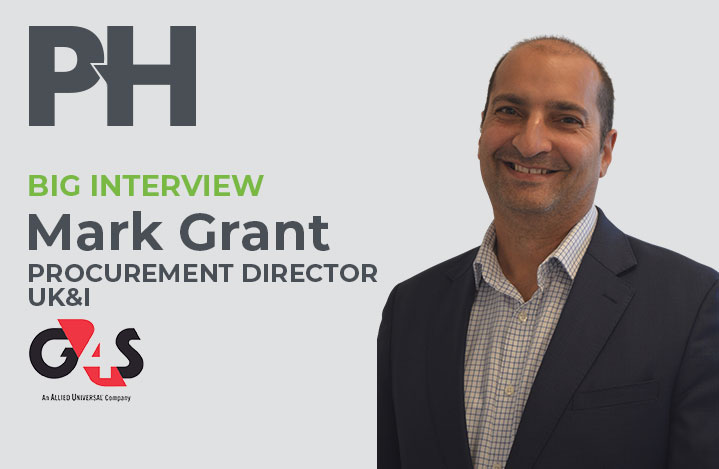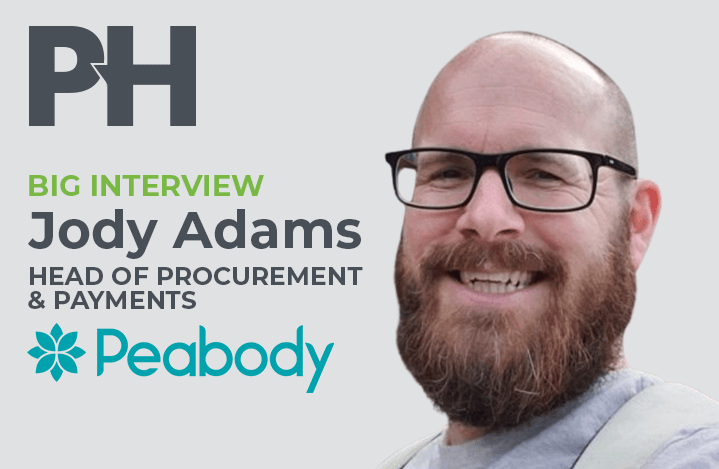How did you get into procurement?
It was during my time at Tesco.
I actually have a background in finance, but I was looking at labour services and the commercial prospect of combining services and multiskilling staff, before I knew what facilities management was.
I was asked by the CPO if I fancied the challenge and have never looked back.
What are the roles and responsibilities the procurement function holds within your organisation? How do you split the function out?
We are essentially set up across four key pillars:
- Category management and sourcing
- P2P
- Supplier management assurance and audit
- Sustainability
As we cover multiple geographies we have a central team supporting the pillars with regional leads like myself covering the key markets.
What are the challenges that you and your team currently face?
The economic volatility disrupting supply chain and price pressures I’m sure are not unique to G4S.
Inflationary pressures and keeping costs down while focusing on service and improved efficiencies are key challenges and a focus for us.
In addition risk and compliance in our supply chain, i.e. due diligence and ongoing monitoring are also very important to us as well as driving sustainability through working with our suppliers to look at innovative ways to reduce carbon emissions and looking at promoting D&I in our supply chain which all form part of the increased demand for social value.
What are you most passionate about when it comes to procurement?
It’s difficult to single out one thing but I really enjoy the commercial challenge of creating a case for change that adds value, not only for the suppliers, but helps develop my team as well as challenge the suppliers.
We have to be multi-faceted from being effective salespeople, negotiators, and change consultants, through to possessing strong financial acumen and a strategic mindset.
What do you think are the key focus areas for procurement right now?
The environment, with high inflation, economic uncertainty, and difficult times – it is important to focus on resilience in the supply chain, mitigating cost increases and managing risk and compliance.
Equally social value and sustainability are not just buzz words it’s here and organisations need to be able to embed this into their DNA and how they do business.
What do you look for when you are hiring?
Great question.
Over the years I have interviewed many candidates.
It goes without saying they have to be technically competent.
I look for demonstrable experience that they can bring to the table.
It’s really important to get the balance right between selling yourself and not talking too much.
Be prepared, do your research but be clear on your story.
In addition, soft skills are crucial for me.
Does the candidate have the emotional intelligence, drive, and curiosity to blend in with the culture and really make a difference?
Could I feel comfortable putting them in front of senior stakeholders?
How would they work with the wider procurement team?
What are their motivations?
These are just some of the things I look out for.
What are your team and organisation doing with regard to sustainable procurement?
We are looking at this from a lot of different perspectives which include:
Baseline level consideration of policies and principles of how we operate and would expect our suppliers to operate through our code of conduct
Being proactive to identify and address risks with regard to human rights and labour. It’s really important we seek to support organisations to ensure their policies and practices are up to scratch whilst also actively identifying and preventing this from happening.
Diversity and inclusion across our supply chain from ethnic minorities, LGBTQ, women in leadership, and disabled-owned businesses to even supporting SMEs is something we are actively identifying and targeting through our sourcing opportunities to ensure we can be as fair as we can be.
Net zero – we have actively changed our internal policy around company cars and offering electric vehicles which has surpassed our expectations in terms of take-up. Equally, we have been proactively looking at our scope 3 emissions in our supply chain, taking best practices, setting our baseline and actively working with key suppliers to look at ways we can collectively reduce, track and report on how we are improving our emissions.
Can you tell us about your biggest achievements in your procurement career?
There’s a lot I am proud of which include creating the case for FM in a large retailer, transforming a staff catering offer, aligning cleaning specifications and best practices across multiple geographies, revamping the supply chain, designing and implementing the procurement aspects for Oracle Fusion, driving risk and compliance in the supply chain or even getting us through the COVID pandemic.
However, I am most proud of seeing the people I have worked with over the years become better versions of themselves, developing and really taking their experiences to move their careers forward.
As I get older it’s the satisfaction that I could mentor and help people to grow that really keeps me motivated as a leader.
What’s the biggest risk you’ve taken?
I would say early in my career where I really stepped out of my comfort zone and went from finance into a sales role.
I learned a lot about myself and seeing the end-to-end spectrum in business rather than just the numbers which I believe helped me be a well-rounded commercial leader today.
What inspires you as a procurement leader?
I like to work with people who are intellectual, challenging and have differing viewpoints because diversity collectively is what makes a successful team and creates great outputs.
I equally thrive on where things are not quite working and creating plans to address them, especially in highly complex and multi-business environments.
What skills do you consider essential to be a procurement leader?
Whether you come from a procurement background or fall into the area from other experiences I believe it’s really important to do three things:
- Listen and observe – understand the organisational context, look at what’s the key things that matter.
- Set your plan and vision – make it relevant so the function demonstrates it is constantly adapting and adding value
- Empower but support – allow your team to grow, learn and flourish but always be there to support, provide guidance, escalate and challenge where needed
What has been the best lesson you’ve learned in procurement?
Listen, observe and understand.
Don’t just go for savings.
Do what is right for service, efficiency, compliance, innovation and sustainability.
Learn from others and be humble about your limitations.
Who has had the most influence on your procurement career and why?
It would be unfair to single out one person as there have been many and they know who they are.
What advice would you give someone who is embarking on a procurement career?
Whether it becomes a career for life or part of your career experience I would just say embrace it.
Learn as much as you can about how to deal with stakeholders, suppliers, the commercial aspects of procurement as well as the more mundane aspects like policies and standard setting.
The key is to be able to understand the business and market space you operate in, try to constantly evolve and look at what you can bring to the table to make a difference and leave a positive legacy with those you work with.
What do you like doing in your spare time?
I have two golden retrievers who need plenty of exercise so I walk them when I can as it helps me to clear my head and get away from the screen.
I also love to road cycle (even though I am probably quite poor compared to the keen cyclists out there!) and play football once a week.
The rest of my spare time is usually being a taxi to my children with their various after-school activities ranging from dance, and karate to football.
I also enjoy cooking as I find it relaxing and I love freshly cooked food and good company.
Do you have a favourite destination?
I used to live and work in Italy when I was younger so I do miss the country and lifestyle, especially the weather and food.
If you could advise your younger self, what would it be?
Life’s a marathon, not a sprint.
It’s true you learn more about yourself over time.
Embrace and enjoy every day.
Work is not the be-all.
Family, friends and having time for yourself are equally important so you can be the best you can be when you do work.
Be yourself and don’t be afraid to ask questions if you don’t know or understand something!
Tell us an interesting fact about yourself
When I was 14 I ran the 100m in 10.9 seconds!





